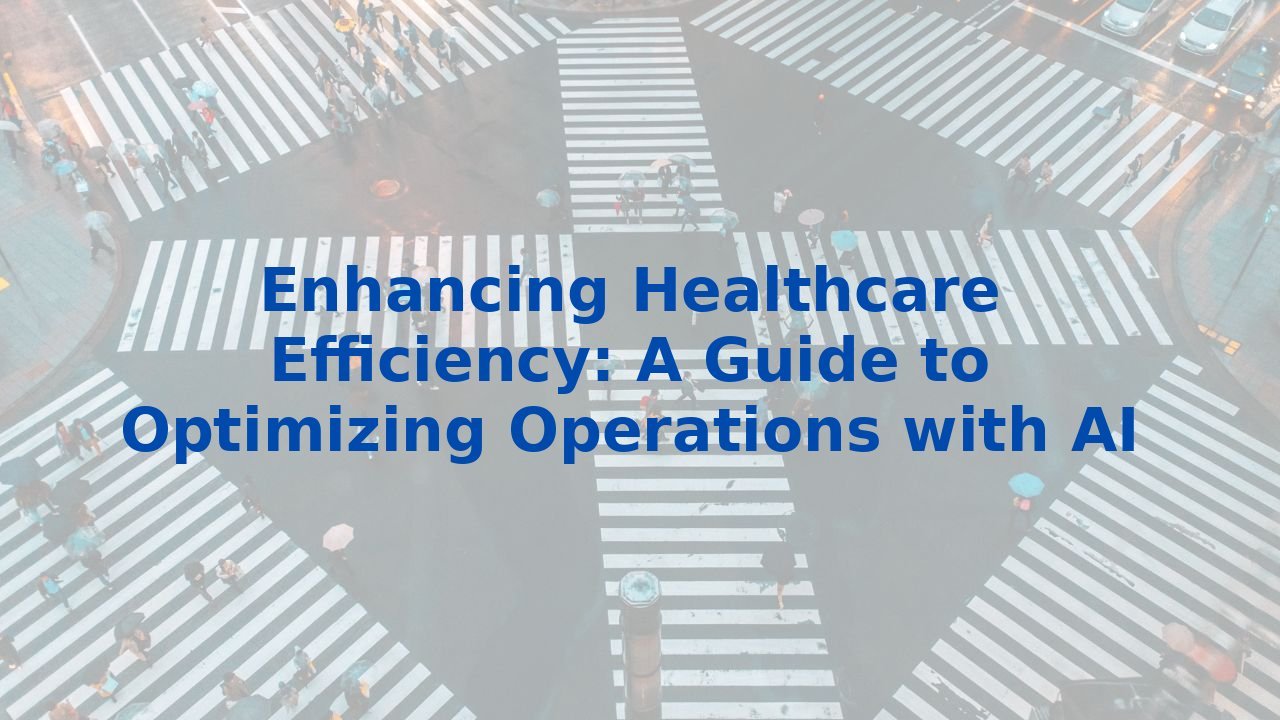Enhancing Healthcare Efficiency: A Guide to Optimizing Operations with AI
Enhancing Healthcare Efficiency: A Guide to Optimizing Operations with AI
The healthcare landscape is evolving, and at its core is the need for greater efficiency and improved patient care. In a sector where costs can rapidly spiral, introducing Artificial Intelligence (AI) is not just a luxury; it’s a necessity. By optimizing operations with AI, healthcare organizations can not only streamline processes but also free up valuable resources for more critical patient interactions.
AI in Healthcare: Automating Routine Tasks
One of the most immediate benefits of AI in healthcare is its ability to automate mundane yet necessary tasks. Imagine a world where data entry, billing, and patient scheduling are handled seamlessly by AI systems. This is not just a futuristic dream; it’s happening now. By automating these routine processes, healthcare professionals find their workloads lightened, which reduces stress levels and the risk of human error.
For instance, AI systems can sift through medical records to identify patterns or flag potential concerns that require further scrutiny. This kind of automation transforms administrative work from a time-consuming chore into an efficient process that allows medical staff to dedicate more time to what truly matters—patient care.
Data Analysis and Predictive Insights
Healthcare generates copious amounts of data daily, and AI excels at making sense of this information. Using advanced machine learning algorithms, AI can analyze vast datasets to uncover trends and deliver predictive insights. Consider how AI systems can interpret medical imaging data, identifying abnormalities, such as tumors, with a precision and speed that surpasses human capabilities.
The implications are profound: early detection means more effective interventions, leading to better patient outcomes. By adopting AI in this manner, healthcare systems can elevate their standards of care while also optimizing resource allocation.
Personalized Medicine: Tailoring Treatment Plans
Healthcare is moving away from a one-size-fits-all approach to a more nuanced, personalized model. AI plays a pivotal role in this transformation. By analyzing genetic data and comprehensive medical histories, AI can help customize treatment plans for individual patients. This tailored approach not only enhances treatment efficacy but also mitigates the costs associated with ineffective therapies.
Ultimately, personalized medicine transforms healthcare into a more responsive and intelligent system—one where outcomes are driven by data-inspired insights rather than guesswork.
The Importance of Training Employees for AI
Implementing AI technologies is just the beginning; the real challenge lies in maximizing their potential. This is where training comes into play. It is essential for healthcare professionals to understand how to interact with AI systems effectively. Training equips them with valuable skills in data interpretation, analysis, and decision-making.
Moreover, an informed workforce is critical in identifying potential biases within AI algorithms and ensuring that data used is comprehensive and reflective of the diverse populations served. In a field as sensitive as healthcare, where biases can lead to detrimental outcomes, this level of vigilance is indispensable.
Concluding Thoughts: The Path Forward
In closing, the intersection of AI and healthcare holds incredible promise. By automating routine tasks, providing deep data insights, and enabling personalized treatment, AI can be a game-changer in enhancing efficiency. However, to truly harness the transformative powers of AI, healthcare organizations must also invest in their most valuable asset: their people.
Training healthcare employees to work with AI systems not only complements the technology but also enriches patient care. By creating a knowledgeable workforce, organizations can ensure that the transition to AI-enhanced operations is not only seamless but also leads to sustainable improvements in healthcare delivery.
Investing in AI training and developing a future-ready workforce could redefine healthcare efficiency for years to come. Discover more about how to equip your organization with AI skills here.



